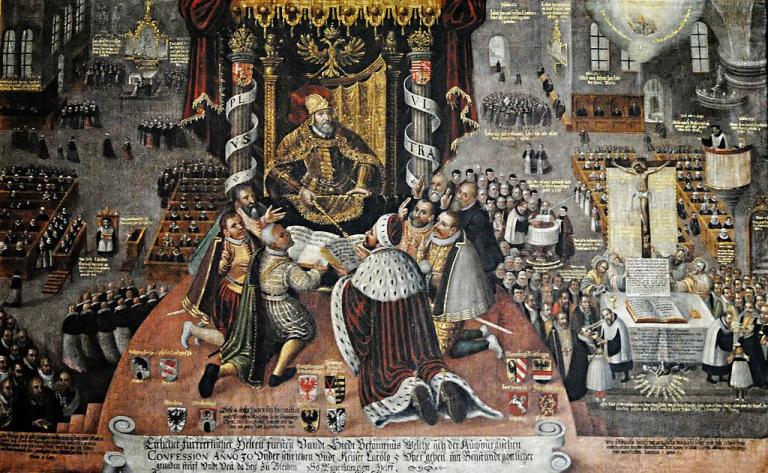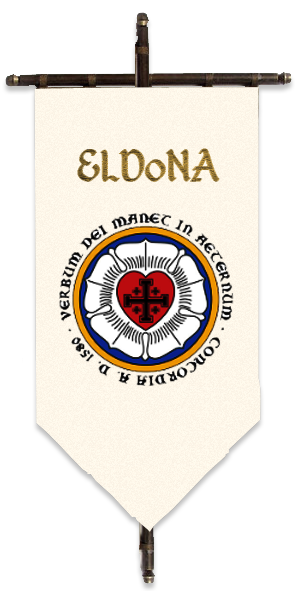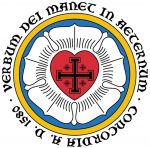What We Believe
We believe that Jesus Christ is true God and true Man, who took on human flesh in order to deliver mankind from sin, death and the devil. He truly died for our sins and was truly raised from the dead for our justification. By His perfect life of obedience to the Father and by His sacrificial death on the cross, He has made satisfaction for the sins of all men and has earned righteousness and forgiveness for all, so that all who trust in Him are forgiven, justified, saved, and made heirs of eternal life.
We are a sacramental Church. In other words, we acknowledge that, although God is everywhere, He has chosen to locate Himself for us on earth, with His grace and forgiveness, in the ministry of Word and Sacrament, that is, in the preaching of the Gospel (the message of salvation by faith alone in Jesus) and in the administration of the Sacraments of Holy Baptism and Holy Communion. Holy Baptism is God’s “sacred act” by which He clothes us with Christ, forgives us our sins, saves us and grants us eternal life. Holy Communion is God’s “sacred act” by which He feeds His children with the true body and blood of Jesus for the forgiveness of sins. Holy Absolution is another divinely instituted “sacred act” in which God speaks the Word of forgiveness to penitent sinners through the mouth of His called servants (i.e., pastors), to whom God, through the Church, has entrusted the Keys of the kingdom of God.
Christians in every age have found it necessary to summarize and explain their beliefs, especially because many false teachings about God have arisen, both inside and outside of the Christian Church. Even much of “Lutheranism” around the world is plagued with false teachings and with churches that use the name “Lutheran,” but bear little resemblance to the historic definition of the word. Originally, “Lutheranism” did not portray itself as one “option” or one “tradition” among many. Instead, Lutherans (at the time of Martin Luther, AD 1483-1546) simply wished to teach and practice what the Christian Church had always taught and practiced, minus any aberrations to the right or to the left of Holy Scripture. We describe ourselves as “Lutherans,” because we still fully subscribe to the Lutheran Confessions, as contained in the Book of Concord of 1580, because they accurately express the true Christian, catholic and historic faith of Christ’s Church, as taught in the Bible. Therefore, we seek to ensure that all of our doctrine and practice conform to the standard of Scripture and the Confessions. We still confess, with the Book of Concord, that the chief article of the Christian faith is that sinners are justified in no other way but by faith alone in Christ Jesus alone.
The Catechism teaches the faith in a plain and simple form.
Dr. Martin Luther wrote the Small Catechism as a tool for parents to teach the six chief parts of Christian doctrine to their children.
Today, Lutherans still use the Small Catechism to teach children and adults the fundamentals of the Christian Faith.
The Augsburg Confession, written in 1530 A.D., is the Lutheran Confession of what the catholic (universal) and apostolic (Scriptural) faith is.
Although it was written almost 500 years ago, it is still a true exhibition of God’s Word since God’s Word does not change throughout the course of time.

Justification is the doctrine on which the Church stands or falls.
We are in communion with The Evangelical Lutheran Diocese of North American (ELDoNA), which is a separate fellowship from other Lutheran bodies in North America.
The diocese has clarified the Scriptural teachings on several controverted items in the Niles Theses, the Malone Theses, and the Theses on Justification.

